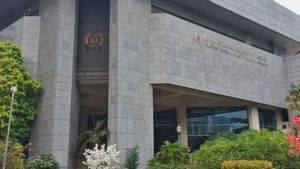JAKARTA - Something that makes an impression is called a memory, be it a memory of a happy or sad event. A study investigating how the brain works on memory found that bad memories are easier to remember than happy memories.
How can? Isn't it that all life does not only experience bad events.
Research on the work of brain memory is traced and used as a reference for developing therapy programs for those experiencing posttraumatic stress disorder (PTSD) or post-traumatic stress disorder.
Because bad experiences that are stored in the memory need negotiation as a process of acceptance, knowing how the brain stores memories becomes a strong foundation for therapy.
The results of Elizabetth Kensinger and colleagues' research are published in a journal in the Association for Psychological Science. The research explained that an unpleasant event is remembered in more detail than a positive event.
In the image shown in Functional Magnetic Resonance (fMRI), cellular activity increases its activity in engaging negative emotions experienced. At this moment the arbitofrontal cortex and amygdala store memories related to the emotional aspects of a bad situation.
The researchers say this technique of retaining bad memories may be an evolutionary tactic to protect against life-threatening events in the future.
The retention of memory in the brain is linked to emotion, as is Kensinger's description of brain circuits.
"Positive or negative events, most of the time - if not all of the time - negative events tend to be remembered more accurately than positive events."
Accurately memorized details lead to negative emotional reactions. For example, when experiencing a thief and pointing a sharp weapon, a person will remember more about the type of weapon used, the height of the thief and the movements that cause fear.
However, something had passed from memory. When remembering small details, a person may forget things that are peripheral, such as things in the surroundings, streets, and the atmosphere of the environment.
Well, this is why there are eye witnesses. This is because a phenomenon that records details of important events to be documented in tracing from eye witness testimony.
"... when the emotional circuits in the brain turn on, the processing level of a typical memory network will work more efficiently in constructing the relevant aspects of the emotions we experience," said Kensinger.
On the other hand, experiencing positive events is less effective at recording certain details.
"So you will remember the good things in just as good a way," said Kensinger.
Based on the information above, it can be concluded that trauma and bad experiences are recorded throughout our life. Furthermore, it means that ways are needed to negotiate with bad experiences so as not to affect all aspects related to quality of life.
The English, Chinese, Japanese, Arabic, and French versions are automatically generated by the AI. So there may still be inaccuracies in translating, please always see Indonesian as our main language. (system supported by DigitalSiber.id)













